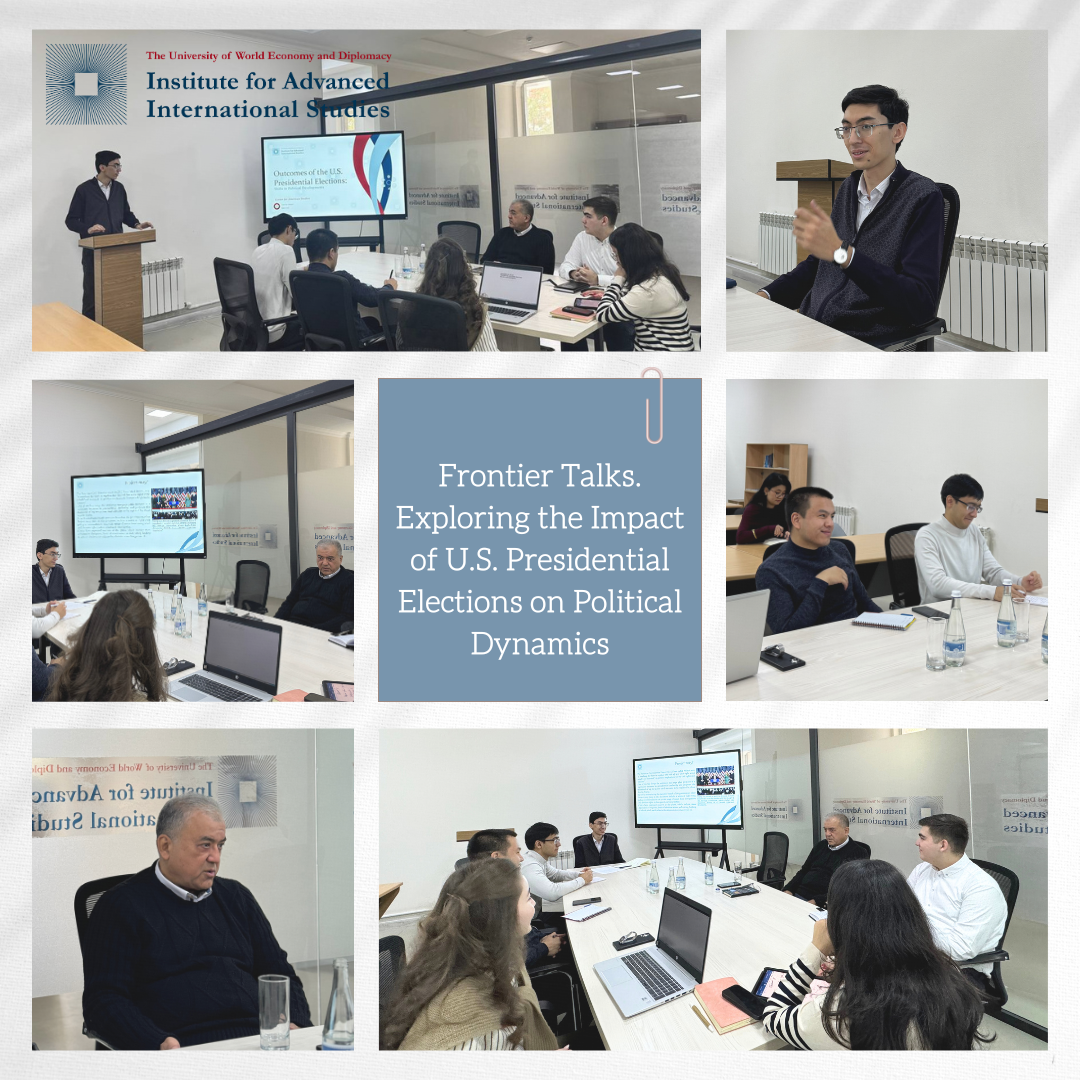
As part of our ongoing #FrontierTalks series, the Centre for American Studies hosted a public seminar titled “Outcomes of the U.S. Presidential Elections: Shifts in Political Developments”. This event, led by Dr. Ulugbek Ishankhodjaev and Fazliddin Djamalov, provided a comprehensive analysis of the latest U.S. election results and their broader implications for both domestic and international political landscapes.
The seminar commenced with a detailed breakdown of the electoral process, highlighting the crucial role of the Electoral College system in determining the next U.S. president. The experts elaborated on how each state’s electoral votes, especially in key battleground swing states, shaped the final outcome of the presidential race.
The speakers covered multiple critical areas impacted by the election results, with a particular focus on the shifts in the U.S. political and legislative environment. One of the central themes discussed was the distribution of power within Congress, addressing the potential challenges the new president may face in advancing their legislative agenda. The balance of power between the Senate and House of Representatives remains a vital factor in the effectiveness of the incoming administration’s policy implementation.
Moreover, the experts provided insights into the anticipated policy shifts under the newly elected administration. Topics such as trade tariffs, immigration policies, and foreign relations were thoroughly analysed. The discussion delved into the implications of proposed tariffs on U.S. imports, stricter immigration controls, and the president-elect’s foreign policy stance towards ongoing conflicts, notably in Ukraine and the Middle East.
A significant portion of the seminar was dedicated to exploring the controversial Project 2025, a detailed policy blueprint that could redefine U.S. governance. According to the analysis presented, this ambitious plan outlines sweeping reforms, including an increase in presidential authority, the dismissal of tens of thousands of federal employees, and significant changes to social and civil rights policies. The experts highlighted concerns raised by civil liberties groups, which fear that these reforms could undermine democratic principles and civil rights protections.
The panel also discussed the potential ramifications of these political shifts on global geopolitics, including U.S. relations with China, Russia, and the Middle East. The experts underscored the need for policymakers in Central Asia and beyond to monitor these developments closely, as they could have far-reaching consequences on international trade, security, and diplomatic engagements.
Participants expressed their appreciation for the in-depth analysis provided by the experts, noting that the seminar offered valuable insights into the complexities of the U.S. political system and its potential trajectory.
IAIS remains committed to fostering informed discussions on critical global issues through its #FrontierTalks series. Today’s seminar marks another step in our dedication to promoting knowledge exchange and dialogue among experts, policymakers, and the broader public.